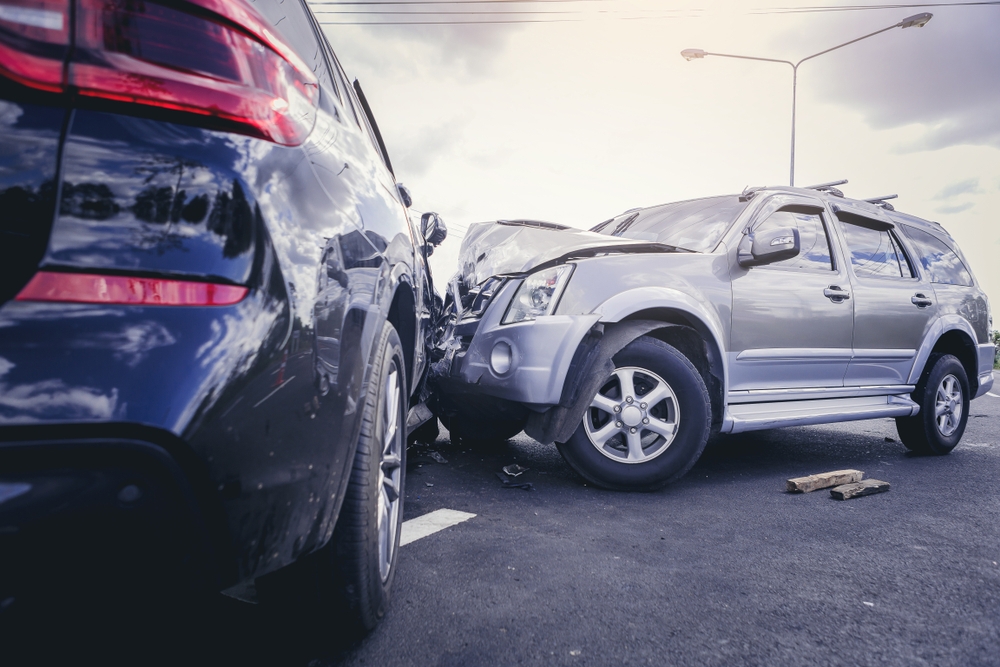
Car accidents in Florida happen every day. And while some collisions are clearly catastrophic, others leave you wondering if you’re really hurt – especially if you're able to walk away from the scene feeling “fine.” But here’s the truth: the adrenaline rush after a crash can mask symptoms of serious injuries for hours or even days.
At Dan Stewart Law Firm, we’ve seen far too many clients delay care or downplay what they’re feeling – only to face long-term health and legal consequences. If you’ve been involved in a car accident in Florida, even a minor one, it’s important to protect yourself legally, physically, and financially.
Here’s what to do in the hours and days that follow.
Prioritize Your Health – Even If You Feel Okay
The moments after a car accident in Florida can be confusing. Maybe your car’s dented, the airbags deployed, but you’re up and moving – so you tell yourself you’re fine. Still, you should always get a medical evaluation after a crash.
Conditions like whiplash, internal bleeding, or concussions often don’t show symptoms immediately. Left untreated, these injuries can become more serious and harder to prove in an insurance claim.
Why it matters: Seeking prompt medical care protects your health and provides documented proof that the accident caused your injuries. That record can be essential if you need to pursue compensation later on.
Report the Accident and Get the Details Right
Under Florida law, you're required to report a car crash to law enforcement if it involves injuries, death, or more than $500 in property damage. Most collisions meet at least one of those criteria.
If officers respond to the scene, they'll file an official report. If they don’t, you’ll need to file a Driver Report of Traffic Crash (Form 90011S) with the Florida Department of Highway Safety and Motor Vehicles (FLHSMV). Make sure you get:
- The other driver’s name, insurance, and contact information
- Contact info for any eyewitnesses
- Photos of the damage, road conditions, and anything that could be relevant (skid marks, signage, etc.)
Having accurate details can protect you from disputes about what happened or who was at fault.
Understand Florida’s No-Fault Insurance System
Florida is currently a no-fault insurance state. That means your own Personal Injury Protection (PIP) coverage pays for your medical bills and a portion of lost wages – up to the policy limit – no matter who caused the accident.
But PIP has limitations.
If your injuries are serious or exceed your policy limit, you may have the right to bring a claim against the other driver. This is especially true if they were reckless, impaired, or violated traffic laws.
At that point, a personal injury claim can help you recover damages for:
- Medical expenses beyond what PIP pays
- Ongoing treatment or rehabilitation
- Lost income and reduced earning potential
- Pain and suffering
- Emotional distress
Be Cautious When Talking to Insurance Companies
After a car accident in Florida, insurance adjusters may contact you quickly – sometimes within hours. While they might sound helpful, their goal is to reduce the amount they pay out.
Here’s what to keep in mind:
- You don’t have to give a recorded statement without first speaking to an attorney.
- Don’t agree to any settlement before understanding the full scope of your injuries.
- Watch for comparative fault tactics, where the insurer tries to say you were partially at fault to lower your payout.
Florida follows a modified comparative negligence rule. If you're found more than 50% at fault, you could be barred from recovering damages altogether. That’s why it’s critical to speak with a lawyer who can protect your rights and challenge unfair blame.
Keep Track of Symptoms, Expenses, and Impact
Even if you’re unsure about filing a claim, it’s a good idea to document everything.
Write down any new or worsening symptoms as they appear. Keep copies of receipts for doctor visits, prescriptions, physical therapy, or other out-of-pocket medical costs. If you miss time from work, note the days and any loss of income.
It also helps to track how the accident affects your daily life – whether it’s limited mobility, disrupted routines, or emotional struggles.
These personal notes not only help your medical providers understand what you’re going through, but they can also strengthen your legal case by showing the full scope of your injuries and how they’ve affected your life.
Timing Matters: Don’t Wait Too Long to Act
In Florida, you generally have two years from the date of a car accident to file a personal injury lawsuit. If you miss the deadline, you may lose your right to pursue compensation – no matter how legitimate your injuries are.
That may sound like plenty of time, but critical evidence (like dashcam footage, surveillance video, or witness memory) can disappear quickly. The sooner you speak with an attorney, the better your chances of building a strong case.
Talk to Someone Who Knows the Roads You Drive
Dan Stewart has spent over six decades in Pace and more than 30 years helping people throughout the Florida Panhandle. We understand what makes local roads dangerous – from rural highways to busy stretches of Highway 90 and Interstate 10.
At Dan Stewart Law Firm, we don’t treat clients like files or case numbers. When you work with us, you’ll meet the people working on your case, and we’ll communicate with you every step of the way.
Whether your accident happened in Pace, Milton, Navarre, Crestview, Pensacola, Gulf Breeze, or Fort Walton Beach, we’re ready to help.
Ready to Talk? Let’s Take the Next Step Together
If you’ve been involved in a car accident in Florida – even if you walked away thinking you were fine – don’t wait to get the guidance you deserve.
Let our team at Dan Stewart Law Firm help you understand your legal options, protect your rights, and move forward with confidence. We’re proud to serve individuals and families in Santa Rosa County, Escambia County, Okaloosa County, Walton County, and throughout Northwest Florida.
You don’t have to face this alone.
Call today or fill out our contact form to schedule your free consultation – and take the first step toward recovery with a team that puts people first.
Legal Disclaimer: This blog is for informational purposes only and is not legal advice. Every accident case is different. Reading this blog does not create an attorney-client relationship. For legal advice tailored to your unique situation, please contact a qualified attorney.

